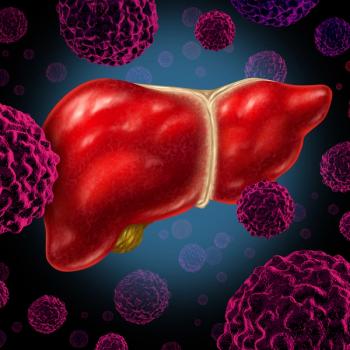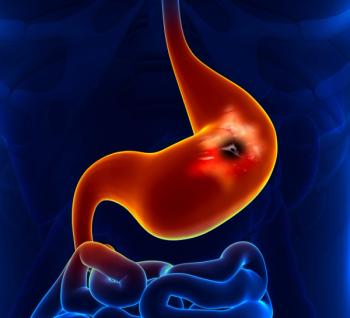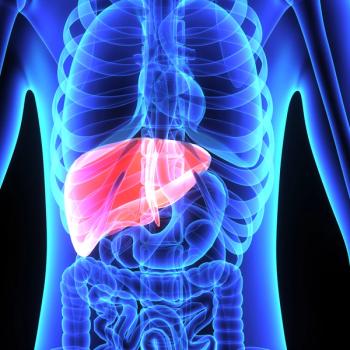
Bristol Myers Squibb announced that nivolumab has been granted priority review for indications in both the first-line and adjuvant treatment settings as therapy for gastrointestinal cancers.

Your AI-Trained Oncology Knowledge Connection!



Bristol Myers Squibb announced that nivolumab has been granted priority review for indications in both the first-line and adjuvant treatment settings as therapy for gastrointestinal cancers.

Lenvatinib monotherapy was an effective first-line therapy for patients with unresectable hepatocellular carcinoma, according to data from a retrospective, real-world analysis.

The approval was based on results from the phase 2 DESTINY-Gastric01 trial which evaluated patients with HER2-positive locally advanced or metastatic gastric or GEJ adenocarcinoma who had progressed on at least 2 prior regimens.

Cancertrialsearch.com helped to match patients with gastrointestinal cancers to clinical trials using 7 different criteria, possibly paving the way for patients to find, understand, and enroll in oncology clinical trials.

Stage 4 gastrointestinal stromal tumors were analyzed through a database query, results of which were presented in a poster at a recent medical meeting.

The phase 1b/2 PLANET study demonstrated promising results for patients with these rare gastrointestinal cancers.

The medical oncologist at the Mayo Clinic in Phoenix, spoke about the progress seen in gastrointestinal cancer research in 2020, as well as what improvements he hopes will occur in 2021.

This study indicated that appendiceal cancer diagnosed among younger individuals harbors a distinct genomic landscape, as compared with appendiceal cancer diagnosed among older individuals.

The FDA granted priority review to a new supplemental biologics license application for pembrolizumab (Keytruda) in combination with chemotherapy for the first-line treatment of patients with locally advanced unresectable or metastatic esophageal and gastroesophageal junction cancer.

The agent’s new drug application will be reviewed under the FDA’s Real Time Oncology Review pilot program and under Project Orbis.

A recent study found that rural non-Hispanic whites and blacks have experienced increased HCC case incidence rates, while urban areas have seen the rate decline since 2009.

Data from a Japanese cohort of patients with primary sclerosing cholangitis suggested ursodeoxycholic acid (UDCA) was significantly associated with reduced mortality or need for liver transplantation and was also likely to be associated with a reduction of biliary tract cancer.

“These results bring us one step closer to the first potential targeted therapy for advanced gastric cancer in over a decade,” said Helen Collins, MD.

The FDA granted priority review to the supplemental biologics license application for trastuzumab deruxtecan (Enhertu) for the treatment of patients with HER2-positive metastatic gastric or gastroesophageal junction adenocarcinoma.

Researchers indicated that this economic evaluation supports the widespread adoption of standard genetic testing for newly diagnosed patients with metastatic gastrointestinal stromal tumors.

The expert from the Otto J. Ruesch Center for the Cure of Gastrointestinal Cancers discussed precision medicine with regard to cancer care, as well as the need to make such care more accessible for the global community.

The study is evaluating the efficacy and safety of sintilimab injection in combination with bevacizumab biosimilar injection compared to sorafenib in the first-line treatment of patients with advanced hepatocellular carcinoma.

Hepatic arterial infusion chemotherapy with oxaliplatin, fluorouracil, and leucovorin significantly improved overall survival compared with transarterial chemoembolization in patients with unresectable hepatocellular carcinoma.

The addition of nivolumab (Opdivo) to chemotherapy resulted in a statistically significant improvement in PFS and evoked higher ORRs in patients with previously untreated advanced or recurrent gastric and gastroesophageal junction cancer.

The designation was granted to DKN-01 for the treatment of patients with gastric and gastroesophageal junction adenocarcinoma whose tumors express high levels of DKK1.

The combination of nivolumab (Opdivo) and chemotherapy led to a statistically significant survival benefit among previously untreated patients with PD-L1–positive advanced gastric cancer, gastroesophageal junction cancer, and esophageal adenocarcinoma.

Frontline pembrolizumab (Keytruda) plus chemotherapy significantly improved overall survival, progression-free survival, and objective response rates compared with chemotherapy alone in patients with locally advanced unresectable or metastatic esophageal cancer.

The medical oncologist spoke about the need to make next-generation sequencing available to all patients with gastrointestinal cancer.

The combination immunotherapy was associated with significant positive outcomes among patients with gallbladder carcinoma and intrahepatic cholangiocarcinoma.

The newest episode of “Oncology Peer Review On-The-Go” features 2 competing opinions on next-generation sequencing for the treatment of gastrointestinal cancers.